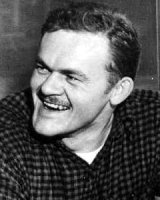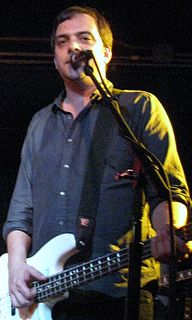A Quote by Elizabeth Berg
In the most self-protective of ways, I don't think about the reader when I'm writing - I just think about the story.
Related Quotes
I want to say that what is cool about writing self-aware first person narrative is that the awareness is not necessarily the same awareness of the reader. I have a story coming out in the Paris Review and it's about a hipster. He think's he's self-aware, he's very introspective and analytical, but when you're reading it you can totally see through his self-analysis because you have a higher awareness than he does. I like playing with that too.
For better or worse, I seem to gravitate toward writing about something or someone else, then have my own self shove its way into that story. It seems insanely narcissistic. But I also think there's a particular effect that comes from using my autobiography in service to another story, as opposed to being the subject. I'm much more comfortable working in that mode. And I do think I have a persona or mood that I keep coming back to: self-conscious, self-critical, unsure. I write a lot about bodies, particularly male ones, usually as a point of emphasis for my insecurities about my own.
But I think writing should be a bit of a struggle. We're not writing things that are going to change the world in big ways. We're writing things that might make people think about people a little bit, but we're not that important. I think a lot of writers think we are incredibly important. I don't feel like that about my fiction. I feel like it's quite a selfish thing at heart. I want to tell a story. I want someone to listen to me. And I love that, but I don't think I deserve the moon on a stick because I do that.
Simply put, meta-writing is writing that is self-conscious, self-reflective, and aware of itself as an artifice. The writer is aware she's writing, and she's aware there's a reader, which goes all the way back to Montaigne's often-used address "dear reader," or his brief introduction to Essais: "To the Reader." It can be done in a myriad of ways.
Thinking about making a love story without music was really frightening, Sciamma admitted. Because every love story we know, we think about 'Titanic' we think about the music, we think about 'Gone with the Wind' we think about the music, we think about 'E.T.' we think about the music, and every love story has its own tune, 'That's our song.'
I really think that if there's any one enemy to human creativity, especially creative writing, its self-consciousness. And if you have one eye on the mirror to see how you're doing, you're not doing it as well as you can. Don't think about publishing, don't think about editors, don't think about marketplace.
This story ["The Depressed Person"] was the most painful thing I ever wrote. It's about narcissism, which is a part of depression. The character has traits of myself. I really lost friends while writing on that story, I became ugly and unhappy and just yelled at people. The cruel thing with depression is that it's such a self-centered illness - Dostoevsky shows that pretty good in his "Notes from Underground". The depression is painful, you're sapped/consumed by yourself; the worse the depression, the more you just think about yourself and the stranger and repellent you appear to others.
I close my eyes and I take a deep breath and I think about my life and how I ended up this way. I think about the ruin, devastation and wreckage I have caused to myself and to others. I think about self-hatred and self-loathing. I think about how and why and what happened and the thoughts come easily, but the answers don't.







































